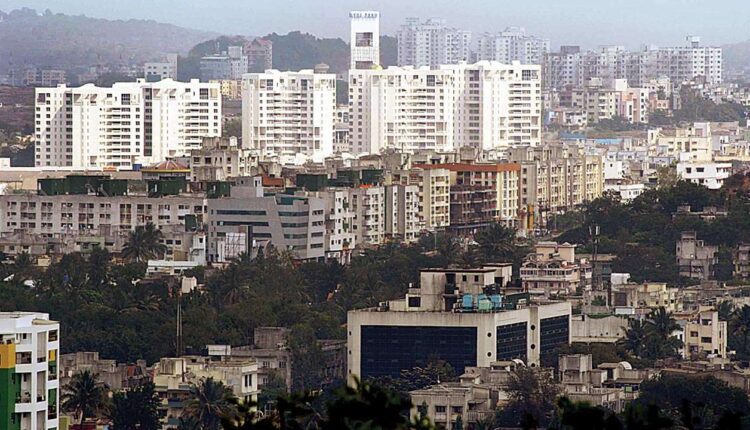The Maharashtra Covid-19 task force has strongly recommended the compulsory use of face masks at both private and public hospitals. With the viral infection slowly getting into an endemic phase, the newly appointed high-level task force is also taking a closer look at concurrent infections like A(H1N1) and H3N2 viruses.
Dr Subhash Salunkhe, chairperson of the state task force, told The Indian Express, “It is not just the coronavirus, but we want to look at other co-relating infections that have implications for Covid-19.”
The nine-member new task force was announced Saturday at an administrative and technical review meeting on the Covid-19 situation led by Health Minister Tanaji Sawant in Pune. Dr Salunkhe chairs the task force while Lt Gen (Retd) Madhuri Kanitkar, Vice-Chancellor, Maharashtra University of Health Sciences; Pune-based Dr R R Gangakhedkar, former Head of Epidemiology and Communicable Diseases Division, Indian Council of Medical Research (ICMR); Dr C G Pandit National Chair of ICMR (Medical); and Dr Rajesh Karyakarte, Maharashtra Coordinator for Genome Sequencing are among the members.
Since January this year, 86 Covid-19 deaths have been recorded in the state, 72 per cent of which occurred in individuals aged above 60. Around 84 per cent of the deceased had comorbidities. Overall, there are 6,167 active cases of the infection in Maharashtra and the dominant variant is Omicron XBB.1.16, as per official data. “The state is showing a plateauing of Covid-19 cases and a decline is anticipated by mid-May,” Dr Salunkhe said.
At the meeting, Lt Gen (retd) Kanitkar also pointed out that the overall trend shows a decline by mid-May. “However, as per our earlier modelling studies, we have observed that the peak of the virus is usually in two to three weeks in such places/areas which have shown a rapid rise in cases,” Kanitkar told The Indian Express. Hence in some areas, the peak could happen a few days earlier, she added.
“The surge in infections is like that of any other influenza virus on its way out. The survival instinct of the virus is stronger so infections may be milder, but faster spreading and hence the WHO has termed it a variant of interest,” Kanitkar said.
Hence the committee members felt the use of masks should be made mandatory at hospitals, particularly as elderly persons arriving for regular check-ups would be most at risk. “The thrust is on protecting those above 60 years and continuing sequencing and using data to model the curve using mathematical expertise,” Kanitkar added. “There cannot be any debate on the utility of masks and it has shown to reduce the number of infections,” Salunkhe pointed out.
The committee will also work on evidence-based specific treatment guidelines (while following the national ICMR protocol) for individuals at high risk and also prepare the state to face challenges on the management of long Covid cases. Salunkhe said their focus was also on hospitals where gaps were identified during the recent mock drill.
“90 per cent of the hospitals have performed well…gaps have been identified and hence these will have to be looked at in terms of better patient care,” Salunkhe said, adding that other areas in focus would be the availability of booster vaccine doses.
Dr Gangakhedkar, when contacted, told The Indian Express that they would also be looking at the issue of death audits. “For instance, if a person suffering from cancer may have acquired Covid-19 infection and dies, it may not necessarily be due to coronavirus but due to pre-existing morbid conditions,” he said.
Meanwhile, the task force will primarily address concerns and evolve newer strategies related to public health, Salunkhe said. “We will also be co-opting clinicians who have done some commendable work in the field,” he said, mentioning that Dr D B Kadam, former head of the department of medicine at B J Medical College, Pune would also be part of the committee.


